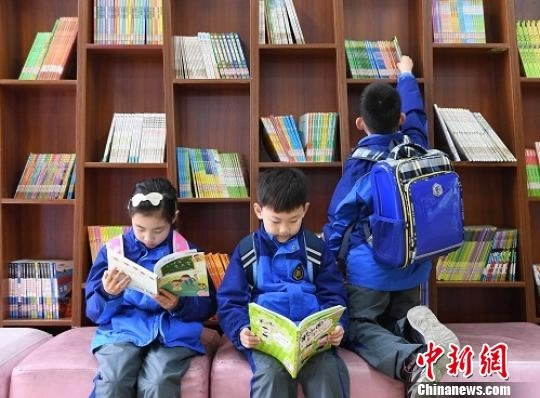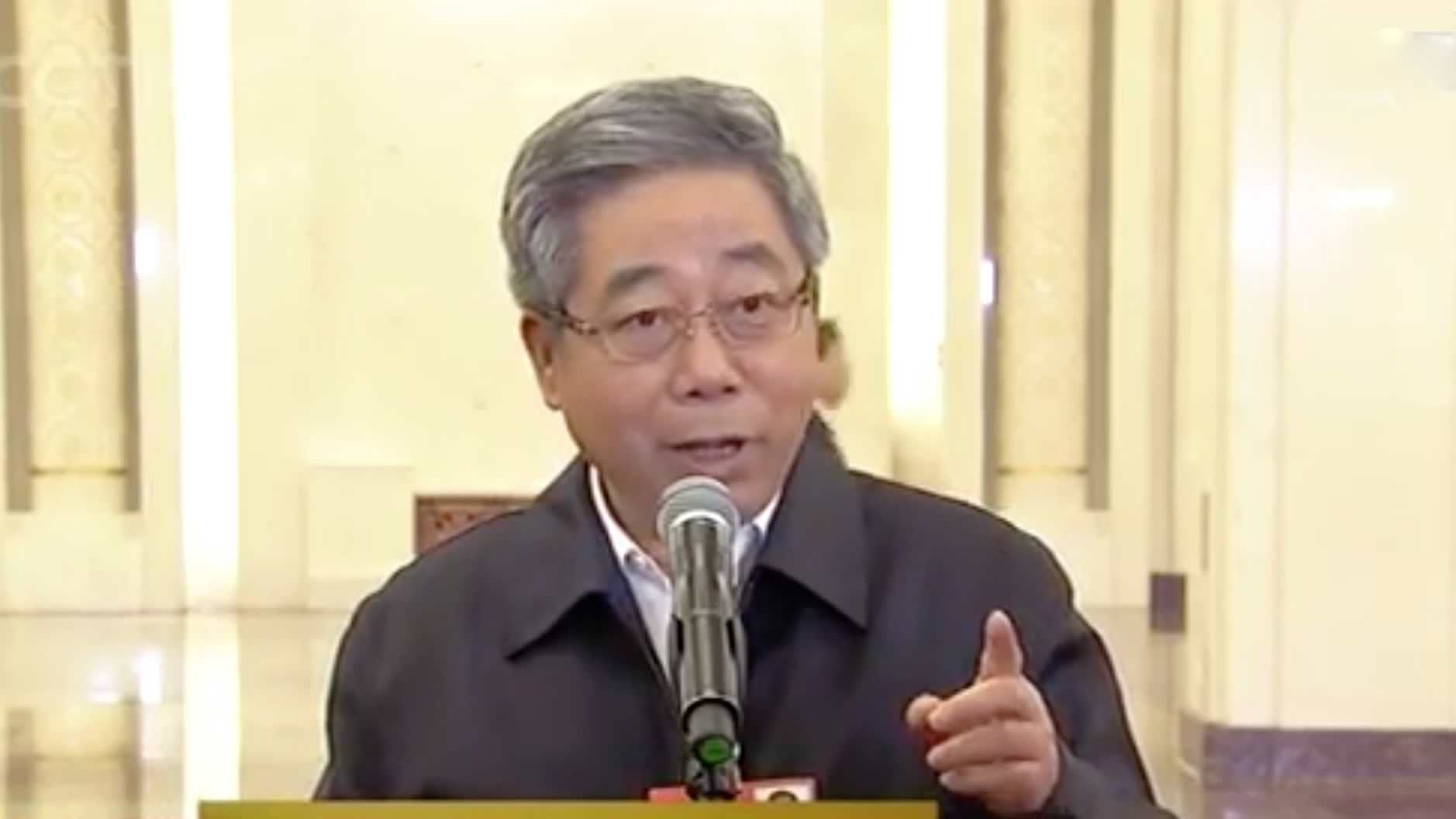
China
13:53, 06-Mar-2018
Zhejiang Province proposes to delay school's start time
CGTN

China’s southeast Zhejiang Province’s proposal of delaying elementary school’s start time won support of parents and it was considered as an embodiment of “slow education mode.”
The Education Department in Zhejiang Province proposed to adjust the start time of elementary school, in which students were required to arrive at school no earlier than 8:00 am and classes should be commenced after 8:30 am.
Before the proposal was made, students were required to arrive at school around 7:30 a.m.

Students in an elementary school in Hangzhou arrived at school on 7:50 am. /China News Photo
Students in an elementary school in Hangzhou arrived at school on 7:50 am. /China News Photo
Fenghuang Elementary School in the city of Hangzhou, Zhejiang Province had started to prepare for the delay of school’s start time since last term and had rescheduled the start time to 8:20 a.m.
Miu Hualiang, headmaster of the elementary school, said that many parents supported the propose because it allows more time for the students to have breakfast and prepare before going to school, according to China News.
The proposal, to some extent, was brought up to ensure students get enough sleep.
According to a survey in elementary and secondary schools in Zhejiang Province in 2016, only 54.1 percent of students in grade four could sleep more than nine hours every day.
Relieving the burden of students and parents has always been a heatedly debate issue in China and “slow education mode” has been encouraged in recent years.

On Saturday, at the Minister's Corridor during the Two Sessions, China’s Minister of Education Chen Baosheng responded to the hotly debated issue of students being dismissed from school at 3:30 p.m.
Chen said that many young parents, especially in big and medium-sized cities, were concerned about the mismatch between work time and school time and also worried about having no time to pick up their children after school.
Chen explained that the “3:30 phenomenon” was a by-product of the rapid economic and social development in China.
In order to solve this problem, Chen pointed out that effective practices had been issued in four major cities and province including Beijing, Shanghai, Nanjing and Guangxi Zhuang Autonomous Region.
For instance, in Shanghai, as there are huge amount of young parents here, after-school services are covered in every kid and teachers who provide this kind of service would be given entitlement and compensation. In Beijing, the time from 3:30 to 5:00 p.m. is made for extracurricular activities and each student is offered with 700 to 900 yuan allowance every year.
In Nanjing, Jiangsu Province, students have a flexible schedule for leaving school, which means students can leave school depending on their flexible arrangement and after-school services are still provided by school.
In southern Guangxi Zhuang Autonomous Region, community resources are utilized to offer after-school services.
Chen said that all of the four approaches have their strengths and each city, province or region should adapt to their own circumstances and explore effective approaches to solve the problem.

SITEMAP
Copyright © 2018 CGTN. Beijing ICP prepared NO.16065310-3
Copyright © 2018 CGTN. Beijing ICP prepared NO.16065310-3